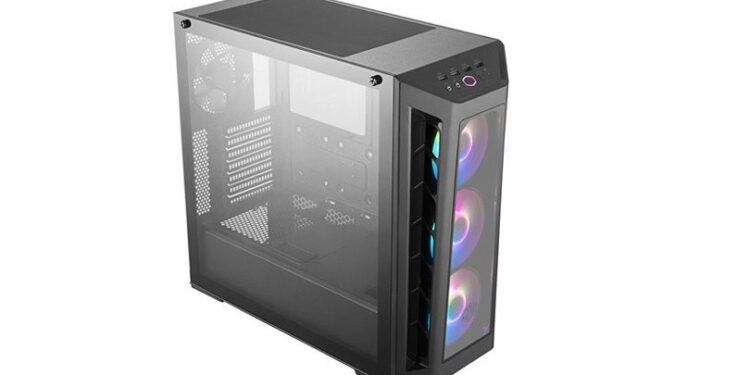The gaming industry witnessed a boom in 2020, with shipments for gaming desktops and monitors increasing to 55 million units. PC gaming is a popular platform across different generations, with 56% of gamers being millennials.
If you are looking to install a power-packed gaming system, start with PC cases. They act as the foundation on which you will be assembling different hardware such as motherboard, GPU, memory modules, storage, and other components according to your requirement.
The article will help you identify a suitable PC case for the ultimate gaming experience.
6 Factors to Check When Buying High-End PC Cases
You can choose to build your PC or choose a form factor case and have the PC customized according to your needs.
Size of the PC Case
Before you start looking into hardware, first decide on the size of the gaming PC you want to build. Consider features such as space requirement and portability.
The motherboard size and cooling system are dependent on the size of the PC case. For example, motherboards like standard ATX, micro-ATX, or mini-ITX have varying dimensions. Standard ATX has a dimension of 12.0″ X 9.6″ whereas mini-ITX stands at 6.7″ X 6.7″.
The mini-ITX is a popular setup among gamers, and there are several form factors PC cases available in the market that support this build type. If you travel around with your gaming system, you can do so easily with an ITX PC without compromising on gaming performance.
GPU Compatibility
The GPU renders the images and animations that you see on the monitor. Today’s games require high processing power to provide you with immersive gameplay. Thus, the graphic card has the ability to make or break your gaming experience.
You do not have to settle on a smaller graphics card when building an ITX PC. There are small form factor cases available that can support some of the latest graphics cards. When choosing the case, go through the GPU compatibility list and the dimensions to understand what cards you can add to the gaming setup.
Airflow and Cooling System
PC games have the capability of driving the hardware to their absolute limits. Without proper airflow, your system could quickly heat up, affecting the performance of the gaming PC. Thus make sure the case you choose has appropriate airflow and fan support. There are PC cases available that have separate airflows for graphics and processor cooling.
If you want to use liquid cooling systems, check the CPU cooler height available in the case. Also, check for the radiator size and support offered. For example, you should be able to easily open radiator doors and make upgrades as necessary.
Accessory Holders
If portability is a priority, then a case with accessory holders will work in your favor. You do not want handles or other holders to pop out during transportation. When not in use, these parts should sit flush with the case.
It may seem like a feature you could compromise on, but carrying a PC case with handles sticking out increases the setup’s chances of damage. With a sleek and compact designed case, you can pop out the holders as and when necessary.
Front Interfaces
Front panel connectivity options help maintain a clean and straightforward gaming setup. You do not have to struggle with I/O ports typically available at the back in traditional PCs. A case should offer the standard connectivity options like Type A and Type C USB and an audio/mic combo.
Ease of Build
Last but not least, a PC case, though small in size, should be easy to use and build your gaming setup into. A case with removable panels is an ideal match for building an ITX PC.
Once the PC is built, maintenance should also be a straightforward process. There are cases available today wherein you can swing the radiator door out of the way to make upgrades without the need to remove them altogether.
Having dust filters is an added advantage. Without these filters, your system could build a significant amount of dust which could cause overheating and affect PC performance. With removable mesh filters placed on the sides and top of the case, you could efficiently conduct maintenance activities.
You do not have to compromise on features and performance when it comes to building an ITX PC. There are PC cases available today that are designed to accommodate full-sized GPUs. With separate airflow pathways, cooling, and fan support, you can help the hardware function optimally. Additional features like front I/O ports, accessory holders, and dust filters make using and maintaining the gaming setup easier.











